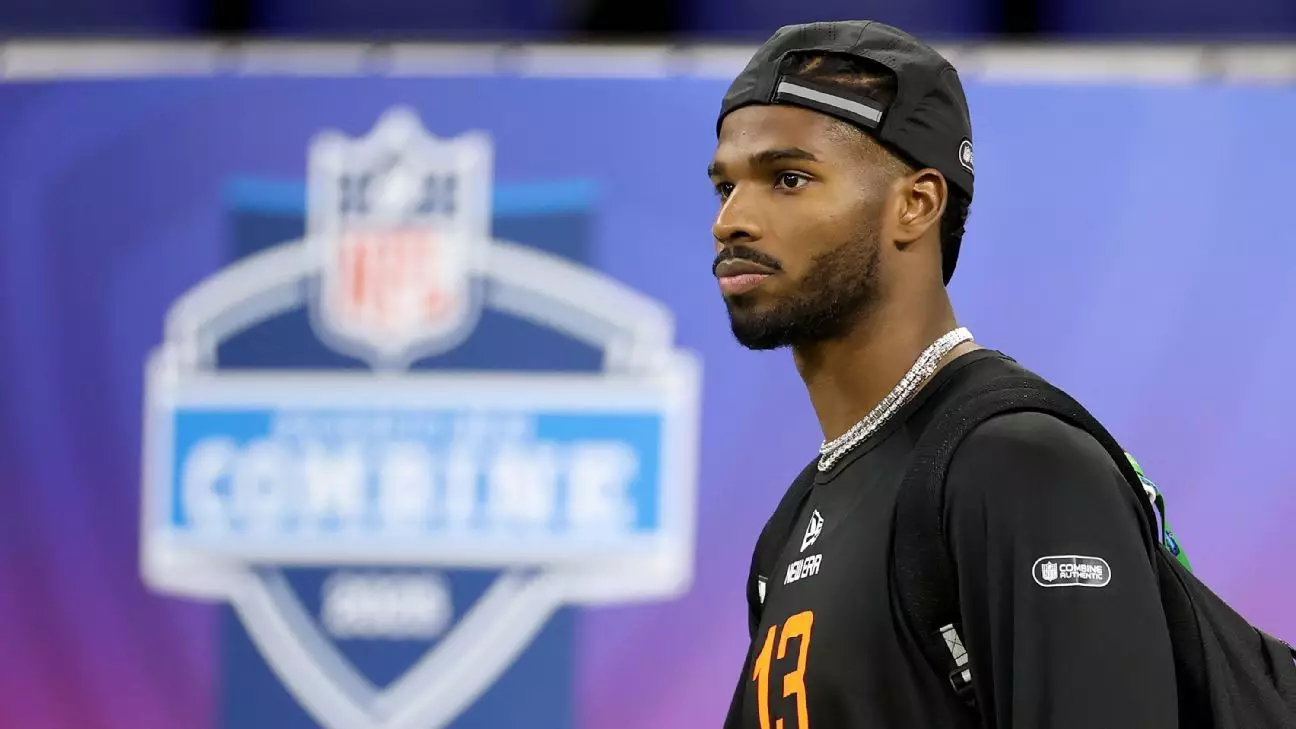The recent prank call involving Shedeur Sanders during the NFL draft has thrust a spotlight on the often overlooked issue of personal boundaries and privacy among athletes and their families. When Jax Ulbrich—son of Atlanta Falcons defensive coordinator Jeff Ulbrich—acknowledged his misstep, admitting to a prank call that misquoted a New Orleans Saints executive, it opened the floodgates for criticism not just toward him, but toward a broader culture that celebrates recklessness under the guise of humor.
Prank culture can often be honed as an innocent rite of passage, especially in the world of sports where camaraderie and banter pervade team dynamics. However, in the digital age, the ramifications of such antics can reach far beyond a simple laugh. The incident raised urgent questions about how personal information, such as direct phone numbers, can easily slip through the cracks, potentially endangering the trust and safety of public figures.
The Role of Responsibility and Accountability
In an age where social media allows for instant communication but also instant backlash, Jax Ulbrich’s apology came fast, reflecting an awareness that such pranks can have damaging consequences. He described his actions as “completely inexcusable, embarrassing, and shameful,” which affirms a necessity for accountability in the age of viral content. The swift nature of his acknowledgment, coupled with his directive to the initial media reports, shows a glimmer of maturity. Yet, the very fact that such a prank could and did occur raises broader ethical questions regarding responsibility, especially for individuals with access to others’ private information.
It’s also telling that the Atlanta Falcons’ statement referred to their intention to “review protocols” to prevent such incidents in the future. This highlights that while individuals are indeed responsible for their actions, organizations must also foster an environment that safeguards personal information—especially when it relates to high-profile participants. The public deserves transparent explanations about the steps being taken to rectify trust breaches, as well as reassurance that genuine concern for people’s well-being outweighs the allure of mindless pranks.
Community Response: The Fine Line Between Humor and Harassment
The responses to this incident, however, reveal a divided camp among fans and athletes alike. While some empathized with Sanders’ sense of humor—after all, the drafted quarterback himself downplayed the prank, labeling it as “childish” yet claiming it had little impact on him—others called for a stronger denunciation of the prank. The natural response of individuals in high-pressure situations, especially during pivotal moments like draft day, is to focus on their achievements. Every athlete deserves the right to bask in their triumphant moments without interruption, particularly from juvenile interruptions.
Moreover, as society grapples with larger issues regarding harassment and bullying, pranks that once may have been deemed harmless now risk crossing lines into unacceptable territory. Even if Sanders took a light-hearted approach toward his experience, the behavior itself wasn’t just childish; it demonstrated a casual disregard for the emotional weight of the moment.
A Cultural Shift is Necessary
What stands out most from this incident is not merely the prank itself, but the cultural shift needed in how we perceive the boundaries of fun. In the digital age, we must acknowledge that our innocent ribbing can carry more weight than we assume. Humorous antics at someone else’s expense can easily spiral into bullying, especially when the targets are public figures who already face immense pressure.
The NFL draft is a significant milestone, not only for the athletes but also for their families and friends. This naturally brings joy and celebration—something that should be protected, not undermined by a misguided prank. Moving forward, stakeholders—including teams, players, and fans—need to embrace a commitment to empathy and respect within the sports community. It is time to raise our standards beyond mere entertainment and remind ourselves that support and positivity should reign during such crucial moments.
In the end, while the Ulbrich incident may fade from the headlines, it should serve as a poignant reminder to athletes, fans, and organizations alike: let’s strive for a culture that promotes respect and integrity, particularly in the face of our greatest triumphs.


Leave a Reply